The secret to combating dry, brittle hair and frizz might just lie in flaxseed. With the rising curiosity about “Is flaxseed good for hair?“, this blog by Blonde Beauty uncovers the benefits of flaxseed gel and flaxseed oil.
These potent ingredients offer nourishment and rejuvenation, paving the way for healthier, more radiant hair. Read on to learn how flaxseed can make a significant difference in your hair care regimen.
Is Flaxseed Good For Hair?
Flaxseed is increasingly recognized for its nutritional benefits, particularly for hair health.
This tiny seed is packed with essential fatty acids, vitamins, and fibers. These nutrients are scientifically proven to be advantageous for both hair and overall health.
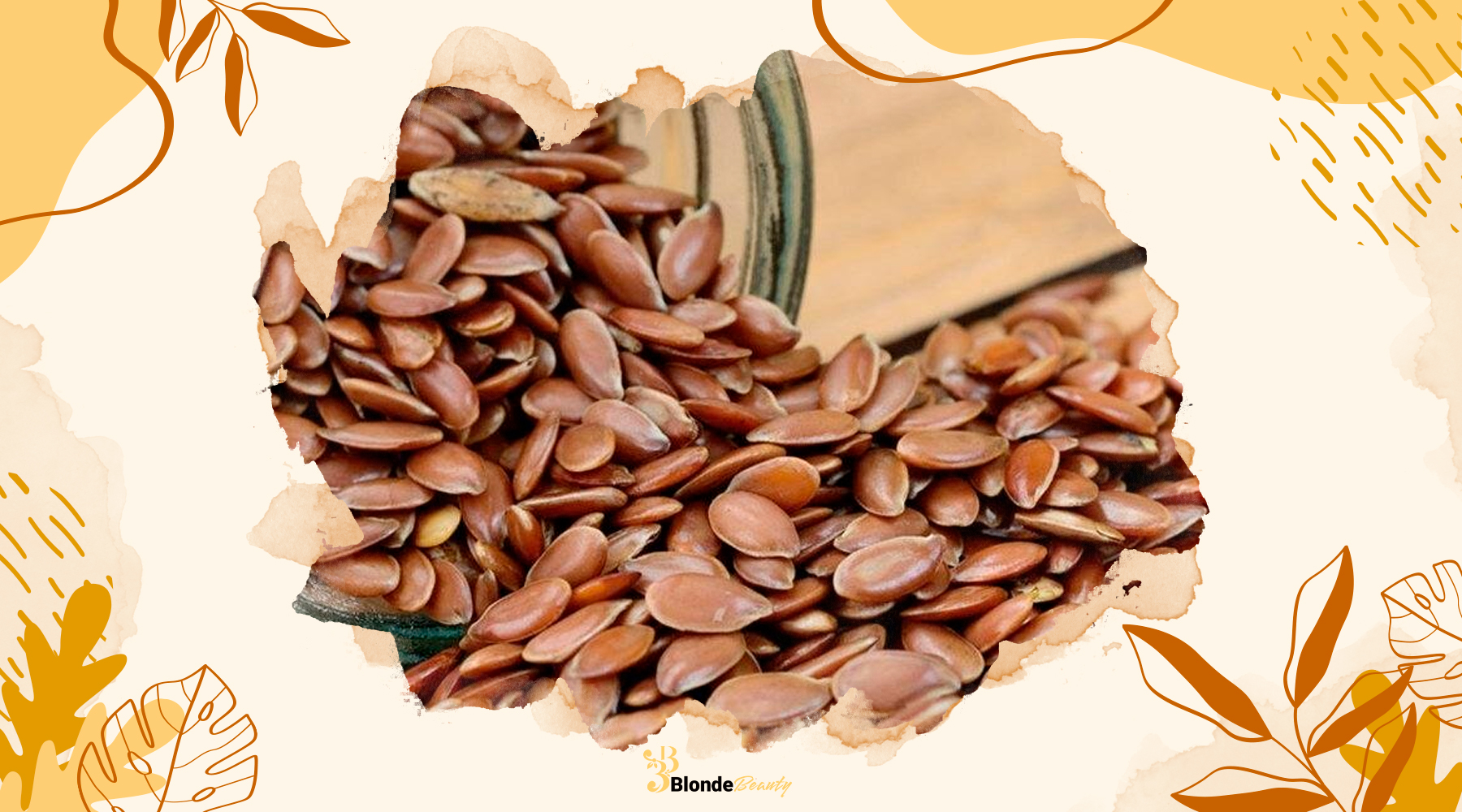
11 Benefits of Flaxseed for Hair
Here are 11 amazing benefits of flaxseed for hair that you may not know.
Enriches All Hair Types
Full of vitamin E and omega-3 fatty acids, flaxseed delivers ultimate nourishment to your hair, no matter your hair type. Using flaxseed oil for hair results in smooth and healthy strands.
Calms Scalp Irritation
Omega-3 fatty acids in flaxseeds help reduce inflammation and scalp sensitivity. This balances scalp pH and soothes the sebaceous glands, ensuring they produce the right amount of sebum for healthy hair growth.
Revitalizes Dry & Brittle Hair
The vitamin E in flaxseed plays a crucial role in preventing and repairing damaged hair. It fights free radicals, reduces scalp inflammation, adds luster, and increases hair elasticity.
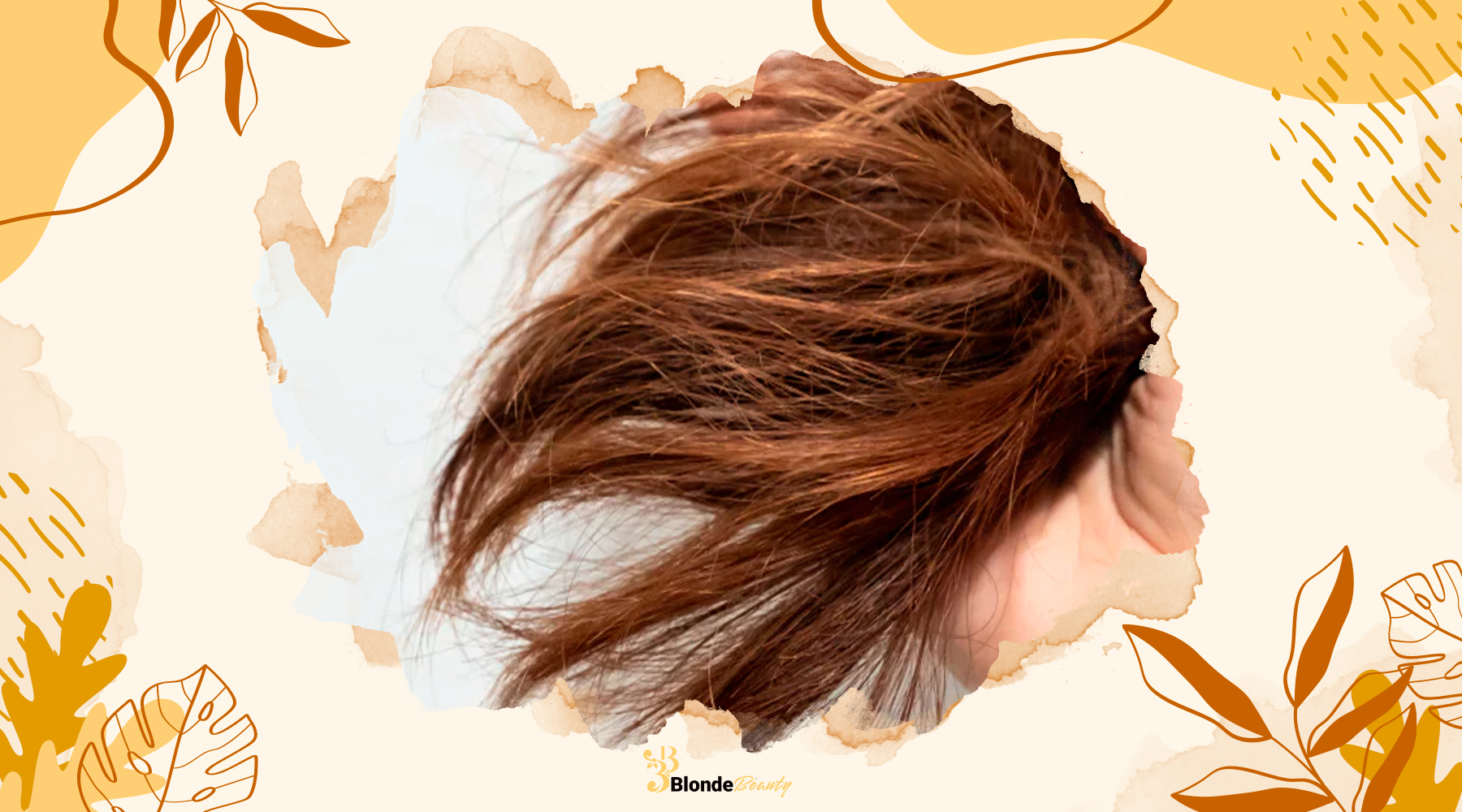
Moisturizes Frizzy Hair
Rich in essential nutrients, flaxseed penetrates your strands and leaves them thoroughly nourished. Include flaxseed in conditioners, hair growth oils, and anti-hair fall shampoos to make your hair more gorgeous.
Fortifies Hair Strands
Being a rich source of omega-3 fatty acids and vitamin E, flaxseeds strengthen hair and prevent breakage. They work from the tips to the roots, promoting the growth of new, stronger hair follicles.
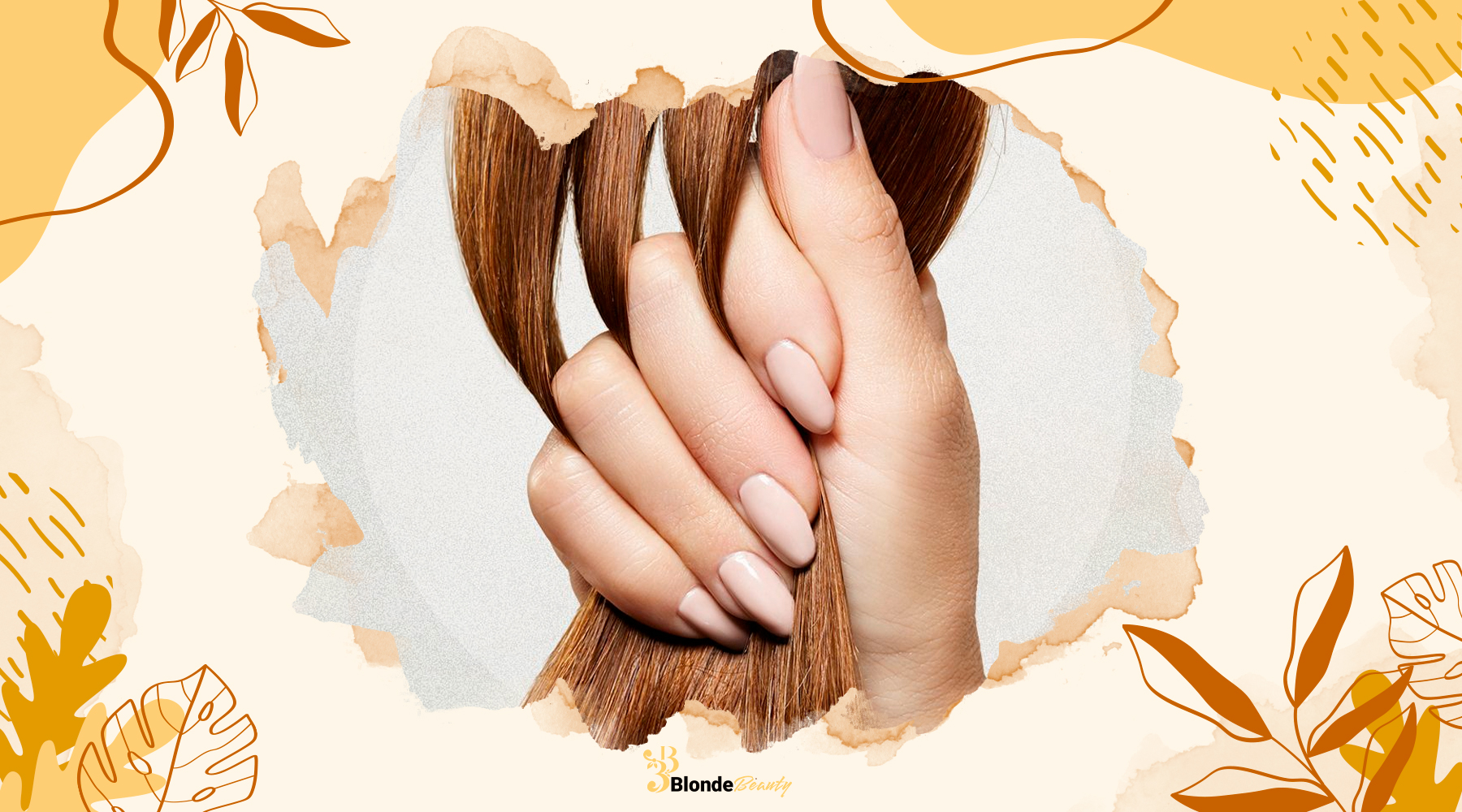
Shields Hair
Regular use of flaxseed gel nurtures and nourishes hair, protecting it from environmental stressors and giving you strong hair.
Encourages Healthy Hair Growth
Flaxseed provides your scalp with the nutrients it needs to promote healthy hair growth. Regular use keeps scalp concerns at bay and leaves it moisturized.
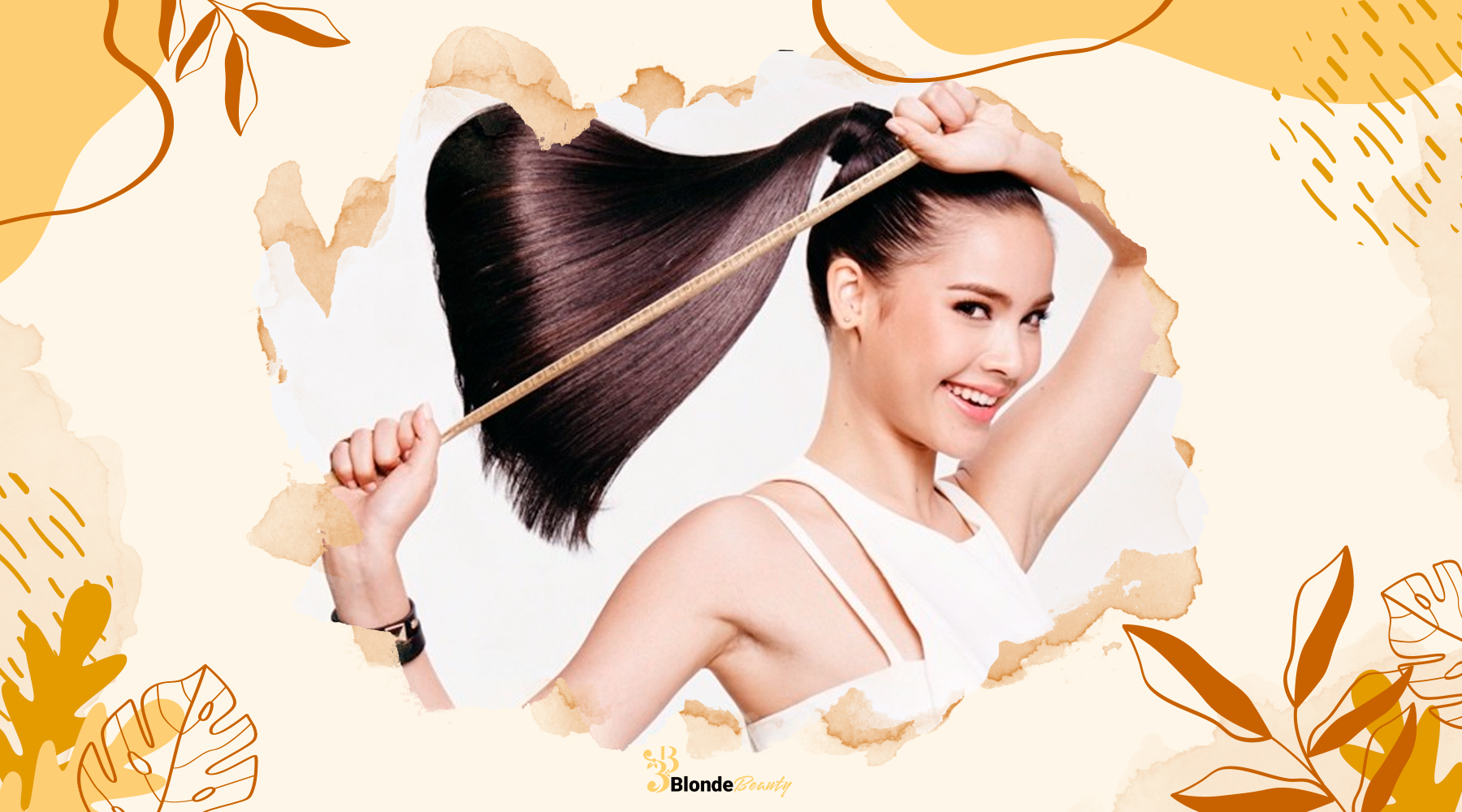
Averts Split Ends
When hair tips turn dry, the risk of split ends increases. Flaxseeds, enriched with protein and vitamin E, keep hair nourished, shiny, and smooth, effectively eliminating split ends. This makes flaxseed a great solution for how to remove split ends at home.
Combats Dandruff
Dandruff can cause your scalp to get itchy, flaky, and very dry, potentially leading to lice. Flaxseed gel reduces scalp infections, including dandruff, thanks to its omega-3 fatty acids, which combat flakiness and reduce dandruff quickly.
Stops Hair Fall
Hair thinning can result from sunlight exposure, pollution, stress, and unhealthy eating. Flaxseed, a powerhouse of fatty acids and vitamins, strengthens strands and reduces hair loss when added to your hair routine.
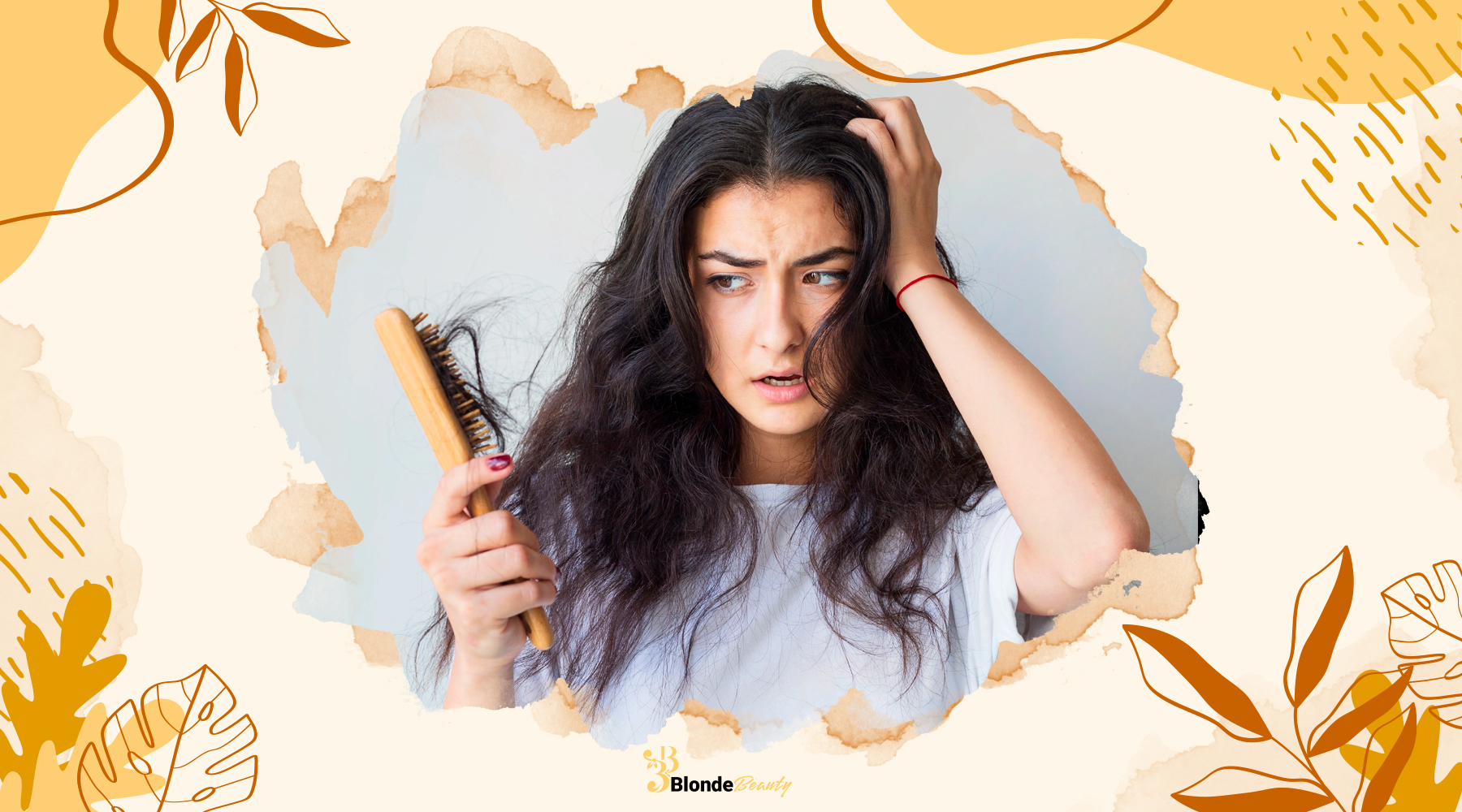
Delays Premature Greying
Premature greying is common among women in their 20s. Fortunately, the vitamin E, proteins, vitamin B, and essential minerals in flaxseeds hydrate the scalp and reduce premature greying, keeping your hair looking vibrant and youthful.
Utilizing Flaxseed for Hair Growth
Flaxseeds are significantly nutritious, and here are some ways you can use them to grow your hair.
Flaxseed Oil
Take two tablespoons of flaxseed oil and warm it slightly for a soothing application. Gently pour a few drops onto your scalp and massage in circular motions to enhance hydration. Work the oil from the roots to the tips of your hair.
Wrap your hair with a hot towel to lock in the nourishment and hydration. Leave the oil on for about 30 minutes before washing it off with a mild, sulfate-free shampoo. Repeat this process two to three times a week to see the benefits.
Flaxseed Hair Mask
Grind a tablespoon of flaxseed powder. Mix it with two tablespoons of yogurt and half a tablespoon of honey. Apply the mixture to your hair and leave it on for about 30 minutes before rinsing it off with a mild shampoo and conditioner. Repeat this once or twice a week for the best results.
For a variation, use two tablespoons of olive oil, one tablespoon of flaxseed powder, and one teaspoon of lime juice. Mix well and apply to your hair, ensuring the tips are covered. Leave it on for 30 minutes and rinse carefully with water.
Flaxseed Hair Gel
Boil ¼ cup of flaxseeds until the liquid thickens. Squeeze in one tablespoon of lime juice and stir well. Once the liquid turns into a gel, remove it from the stove.
Let it cool, then strain and collect the gel in a bottle or jar. Apply it before styling your hair each morning for neat, healthy, shiny, and gorgeous hair. You can use this gel daily to promote better hair growth.
If you’re too busy for these DIY methods, consider using flaxseed-infused hair products.
Potential Risks of Flaxseed Oil Usage
While flaxseed oil is a plant-based, natural food source, it can still present some risks. Here are some side effects you might need to know:
- Gastrointestinal Issues: Consumption of flaxseed oil can lead to abdominal cramps, bloating, gas, diarrhea, and constipation.
- Toxicity: Eating unground, unripe flaxseeds can be toxic.
- Blood Pressure: Flaxseed oil may cause a decrease in blood pressure.
- Prostate Cancer Risk: There is a possible increased risk of prostate cancer associated with flaxseed oil.
- Estrogen Levels: Flaxseed can raise estrogen levels, which may negatively affect a fetus during pregnancy.
- Drug Interactions: Flaxseed oil may interact with certain medications, especially blood thinners, cholesterol medications, and insulin for diabetes management.
- Skin Sensitivity: Topical application of flaxseed oil may cause skin sensitivity.
Comparison: Flaxseed Gel Versus Flaxseed Oil
Is flaxseed gel good for hair? Is flaxseed oil good for hair? Are both good for hair? Which one should I choose?
The short answer is that Flaxseed Gel and Flaxseed Oil share many benefits but have a few key differences.
Flaxseed Gel:
- Moisturizing: Being water-based, flaxseed gel is highly moisturizing for the hair.
- Styling Benefits: The gel is a versatile hair styler for natural hair, defining curls, twist-outs, loc-retwists, and can be used for sleek ponytails and buns.
- Nutrient-Rich: It adds essential nutrients to your hair, providing moisture and enhancing your style.
Flaxseed Oil:
- Adds Shine: Flaxseed oil is excellent for adding shine to your hair.
- Reduces Frizz: It effectively reduces frizz, offering the same health benefits as the gel.
- Non-Moisturizing: Unlike the gel, the oil itself is not moisturizing.
- Not a Styler: The oil is not suitable for styling hair.
Notes:
- Choosing Between Gel and Oil: If you need moisture and styling benefits, opt for flaxseed gel. For shine and frizz reduction, flaxseed oil is a better choice.
- Combined Use: You can use both products together for comprehensive hair care, combining the moisturizing and styling benefits of the gel with the shine and frizz reduction of the oil.
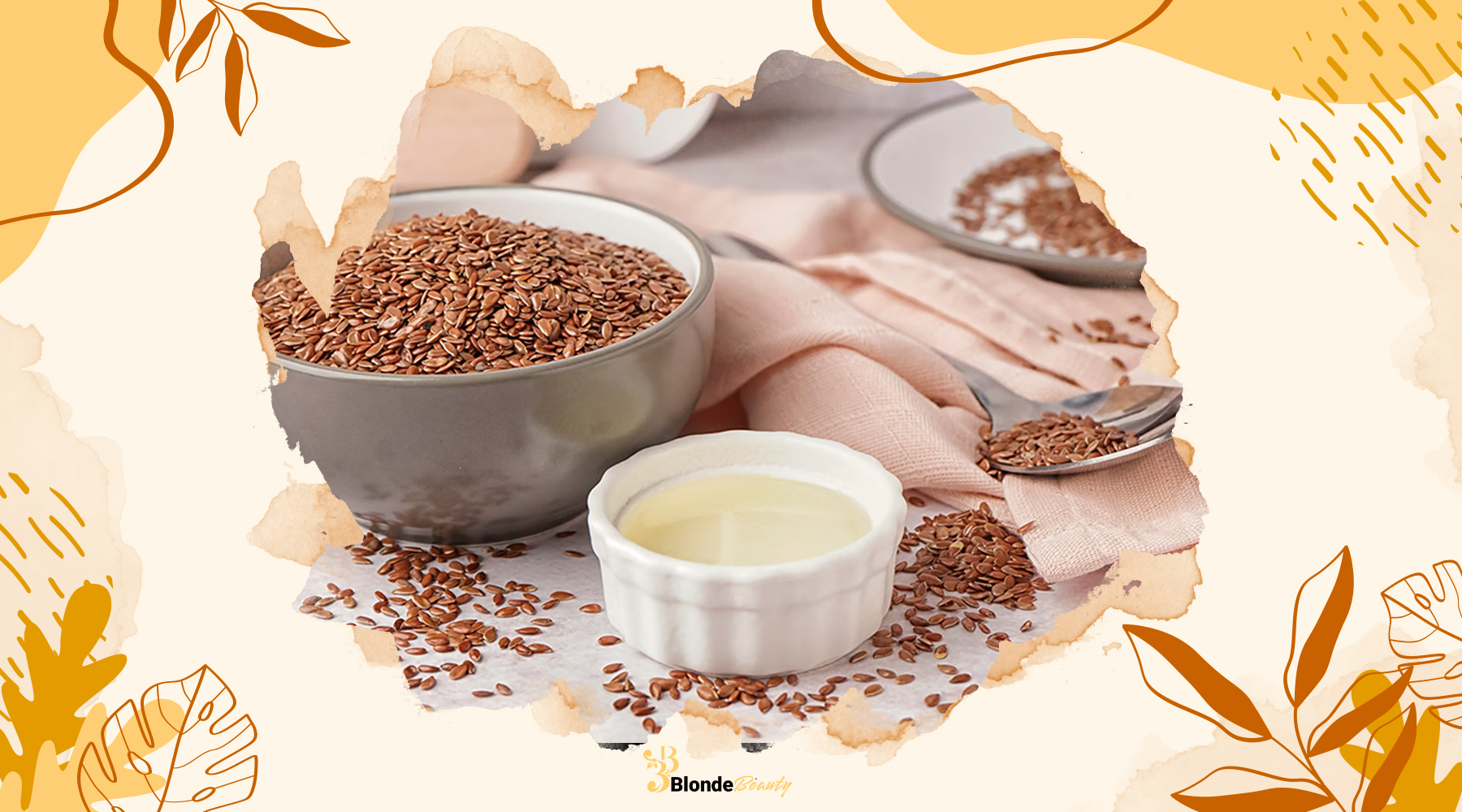
Conclusion
In short, is flaxseed good for hair? Now you know. Flaxseed Gel and Flaxseed Oil both offer incredible benefits for hair, making them excellent additions to your hair care routine. Whether you’re looking to add moisture, shine, or improve hair health, these natural products have you covered.
Try incorporating flaxseed into your regimen and see the difference it can make. We would love to hear your own stories and experiences with flaxseed for hair growth in the comments.
Don’t forget to check out more blogs from Blonde Beauty for additional tips and insights on hair care.

Laureate Professor Clare Collins
Professor Clare Collins is a leading expert in nutrition and dietetics at the School of Health Sciences, part of the College of Health, Medicine and Wellbeing. Her work is changing the way we think about food and health. She grew up as one of nine children and was the first in her family to finish high school and go to college. This background gave her a strong work ethic and a deep appreciation for seizing opportunities.
As the Director of the Hunter Medical Research Institute’s Food and Nutrition Program and a recipient of three NHMRC Research Fellowships, Professor Collins is making a big difference in public health. She focuses on helping people who are often overlooked, using new technologies like apps and online programs to improve their nutrition and reduce the risk of chronic diseases.
Professor Collins is well-respected and has been recognized as a Fellow in four major health and science organizations. She leads a diverse team of experts, including dietitians, computer scientists, and engineers, working together on global health projects.
Her achievements are impressive. She has received over $29 million in research funding, published more than 450 papers, and helped 35 PhD and Master’s students complete their degrees. She’s also active in sharing her knowledge with the public. She has developed tools like the Australian Eating Survey and the Healthy Eating Quiz, and she often appears in the media to talk about nutrition.
PUBLISHED ARTICLES
- Collins, C. (2019). “The Effect of a Pilot Dietary Intervention on Pain Outcomes in Patients Attending a Tertiary Pain Service.”
- Collins, C. (2022). “Variation in cardiovascular disease risk factors among older adults.”
- Collins, C. (2022). “Evaluation of an online intervention for improving stroke survivors’ health-related quality of life: A randomised controlled trial.”
These articles show Professor Collins’s commitment to understanding how better nutrition can improve health. Her work is important for researchers, doctors, and anyone interested in healthy living.
